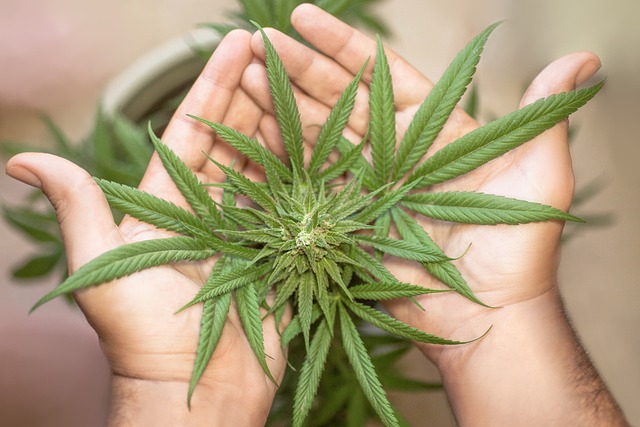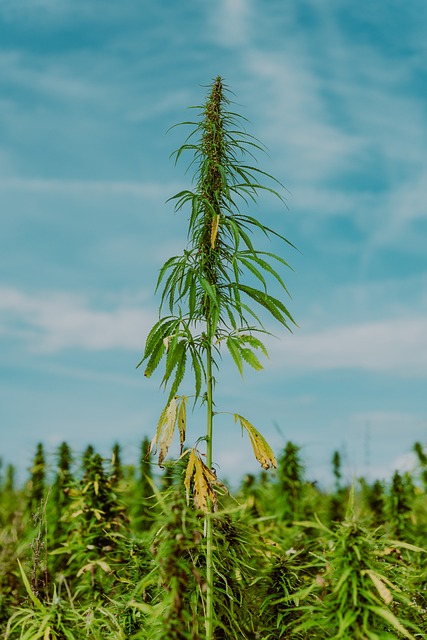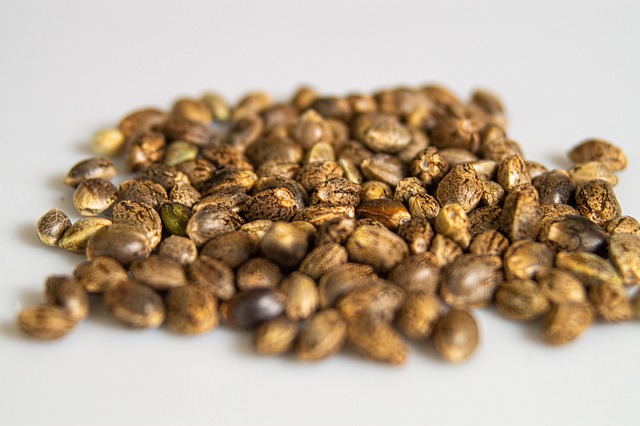THCA, or Tetrahydrocannabinolic Acid, is a non-psychoactive cannabinoid present in the Cannabis sativa plant and distinct from its psychoactive counterpart, THC. In Delaware, THCA's legal status is clearly defined with the state legislature decriminalizing up to one ounce of cannabis, including THCA Flower, for adults over 21 as of July 2019. While personal use is permitted without criminal penalties, commercial activities such as selling or cultivating THCA Flower require licensing due to its inclusion in the state's medical marijuana program since 2011. The Office of Medical Marijuana oversees the safe dispensation of these products to registered patients. As Delaware's cannabis policies continue to evolve, legislative action could further influence THCA's legal status and accessibility. THCA is a precursor to Delta-9 THC and has garnered attention for its potential therapeutic benefits without the psychoactive effects, making it particularly interesting in Delaware where its legal use is supported by state laws and the 2018 Farm Bill. Studies are examining its anti-inflammatory properties and potential to inhibit certain diseases, offering a clear-headed alternative for health and wellness. Consumers can explore THCA's benefits through various methods in Delaware, where it is legally recognized for its therapeutic potential.
Explore the intricate world of THCA flower, a non-psychoactive cannabinoid that’s gaining attention for its potential therapeutic benefits and complex role within the cannabis plant. This article delves into the legal status of THCA flower in Delaware, shedding light on where it stands under state law. From understanding its chemical makeup to exploring how it interacts with other cannabinoids in what’s known as the entourage effect, we unravel the science behind THCA. We also navigate the process of sourcing this compound legally within Delaware’s regulated marketplace, offering insights into dispensaries and regulations that govern its availability. As you journey through this comprehensive guide, discover how to responsibly enjoy THCA flower, including proper dosing, storage, and the all-important step of decarboxylation to transform THCA into the psychoactive THC if desired. Join us as we examine the current legal landscape, potential future research directions, and the broader implications for consumers in Delaware. THCA’s journey from a budding curiosity to an established part of the cannabis industry is one worth exploring.
- THCA Flower: A Comprehensive Guide to Its Legal Status in Delaware
- The Chemical Complexity of THCA: Understanding its Structure and Formation
- THCA vs. Delta-9 THC: Key Differences and Effects
THCA Flower: A Comprehensive Guide to Its Legal Status in Delaware

THCA, or Tetrahydrocannabinolic Acid, is one of the many cannabinoids found in the Cannabis sativa plant. Unlike its more famous counterpart, THC (Tetrahydrocannabinol), THCA is non-psychoactive and has been gaining attention for its potential therapeutic properties. In Delaware, the legal status of THCA Flower is subject to the state’s evolving cannabis laws. As per the Delaware Senate Bill 51, which was enacted in July 2019, the possession of up to one ounce of cannabis, which includes THCA Flower, is decriminalized for individuals 21 years and older. This means that while it is not legally sold or cultivated without proper licenses, adults are not subject to criminal penalties for its possession in Delaware.
The regulatory framework governing THCA Flower in Delaware is distinct from states where recreational cannabis is fully legalized. In Delaware, a medical marijuana program has been operational since 2011, allowing qualified patients to access cannabis products, including those rich in THCA, for therapeutic use. The state’s Office of Medical Marijuana (OMM) oversees the production, sale, and distribution of these products, ensuring they are dispensed legally and safely to registered patients. As of my knowledge cutoff date, legislative efforts continue to shape the future of cannabis in Delaware, potentially leading to more progressive policies regarding THCA Flower’s use, cultivation, and sale. It is always advisable to consult current state laws or legal counsel for the most up-to-date information on THCA legality in Delaware.
The Chemical Complexity of THCA: Understanding its Structure and Formation

Delta-9-tetrahydrocannabinolic acid (THCA) is a naturally occurring compound found in the cannabis plant, which, through heat or light exposure, can transform into the more well-known psychoactive cannabinoid THC. The molecular structure of THCA is particularly intricate; it consists of a cyclic ether, whereby a carboxyl group (a -COOH) is attached to a cyclic ring at the ninth carbon atom of the cannabinoid skeleton. This complex arrangement is pivotal in determining its pharmacological effects, which differ significantly from those of THC or other cannabinoids. The formation of THCA occurs primarily during the maturation stage of the cannabis plant and is influenced by genetic factors as well as environmental conditions such as light intensity, temperature, and humidity. Understanding the chemical complexity of THCA is crucial for researchers and scientists working in the field of cannabinoid research, as it informs the development of pharmaceuticals and therapeutic applications. In the context of legal considerations, it’s notable that THCA itself is non-psychoactive, which has led to its exploration in various medical and wellness contexts. For instance, in Delaware, where the legal landscape surrounding cannabis and its derivatives is continuously evolving, THCA products are often included in the list of permissible cannabinoids for research, medical use, or consumer sale, provided they adhere to state regulations. This has opened up avenues for the study and utilization of THCA’s potential benefits without the psychoactive effects associated with its decarboxylated form, THC.
THCA vs. Delta-9 THC: Key Differences and Effects

Cannabidiolic acid (CBDa) and tetrahydrocannabinolic acid (THCA) are both naturally occurring compounds found in the cannabis plant, with THCA being the precursor to Delta-9 THC, the psychoactive component familiar to many consumers. While Delta-9 THC is well-known for its psychoactive effects, THCA presents a distinct profile due to its non-psychoactive nature at lower doses. THCA is often present in raw cannabis plants and flowers, and it’s legal status in states like Delaware, where cannabis for recreational use has been legalized, allows consumers to explore its potential benefits. Unlike Delta-9 THC, THCA interacts with the body’s endocannabinoid system without inducing a high, making it a subject of interest for those seeking wellness effects without psychoactive influence. The effects of THCA are being studied for their potential to reduce inflammation and inhibit the progression of certain diseases, offering a therapeutic option for a range of conditions.
Consumers curious about the differences between THCA and Delta-9 THC often note that THCA is associated with a clear-headed high, which contrasts with the more typical euphoric and sedating effects of Delta-9 THC. In its raw form, THCA is found in higher concentrations and can be consumed through various methods such as juicing fresh cannabis or taking it as an isolate or extract. As for its legal status, THCA itself is federally legal under the 2018 Farm Bill, but state laws vary, with Delaware being one of the states where THCA-rich products can be legally sold and consumed, provided they meet state regulations. This legislative distinction allows consumers in Delaware to explore the potential therapeutic benefits of THCA, which continue to be a topic of scientific interest and personal experimentation.
THCA flowers occupy a unique position within the legal cannabis landscape, particularly as regulations evolve in states like Delaware. This comprehensive guide has delved into the intricate structure of THCA, its formation process, and how it differs from Delta-9 THC in both effects and legality. As we’ve explored, understanding the nuances of THCA’s legal status is paramount for consumers and policymakers alike, especially in a state like Delaware where laws are being redefined. The chemical complexity of THCA underscores the need for continued research to fully harness its potential. With this knowledge, enthusiasts and professionals can navigate the therapeutic and recreational use of THCA flowers with greater confidence and clarity.
